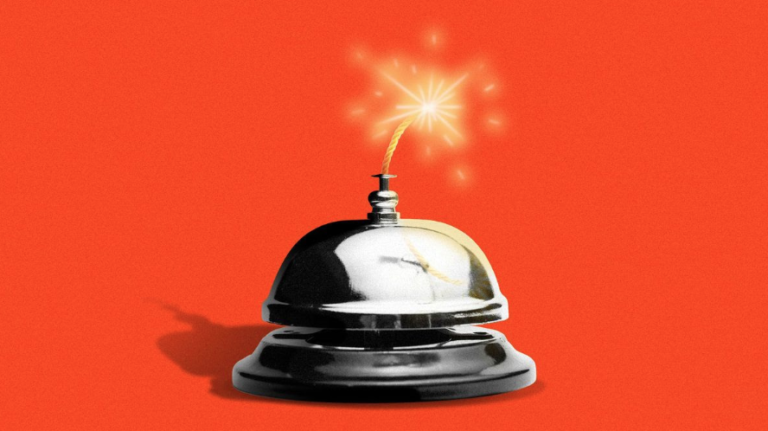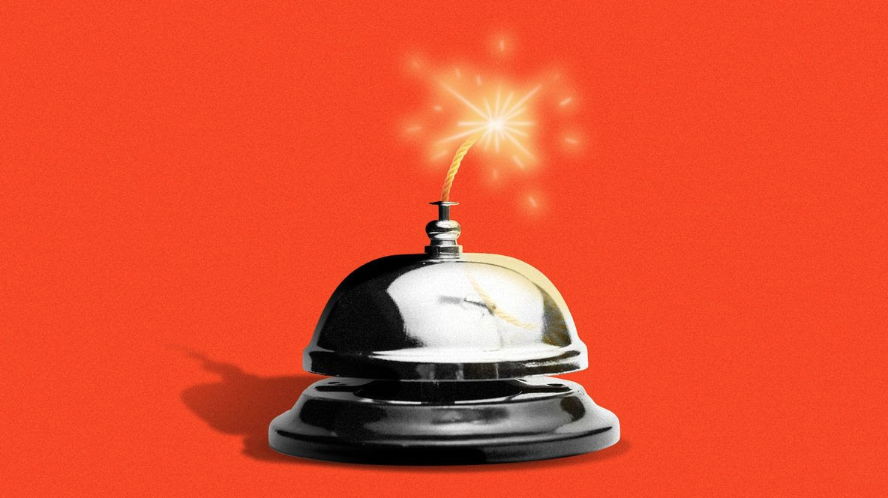Happy Ground Hog Day! As I’m writing this, Punxsutawney Phil has yet to come out of his den to predict what the next six weeks will bring: more winter  or an early spring
or an early spring  . But whichever it may be, Bill Murray’s old movie
. But whichever it may be, Bill Murray’s old movie  today will be everywhere to see. If you — like Bill — find your day repeating, just ask Phil what he’s been eating.
today will be everywhere to see. If you — like Bill — find your day repeating, just ask Phil what he’s been eating.
Situation Awareness: Lots to do and see in Orlando this Groundhog Day Weekend:
The U.S. Olympic Marathon Trials


 are Saturday in downtown.
are Saturday in downtown.The NFL Pro Bowl
 is Sunday at the Orlando Camping World Stadium.
is Sunday at the Orlando Camping World Stadium.MegaCon is at the Orange County Convention Center all weekend.
1 big thing: An idea with momentum - Converting hotels to apartments

Housing costs are outstripping wage growth, and underperforming hotels contribute to urban blight. One solution: Convert old hotels into affordable apartment complexes.
Why it matters: For private investors going for market-rate apartments, the ROI is promising. Philanthropic organizations trying to get people off the streets by renting at a fraction of market rates can draw on public funding and private donations for the work.
Two birds: Converting decaying old hotels into affordable multifamily rental housing properties revitalizes properties and neighborhoods — and puts roofs over heads.
More than 650,000 people experienced homelessness in 2023. One prevailing cause was the lack of affordable housing.
In many cities, older hotels located far from attractions or the business district struggle to fill rooms. Some say dilapidated like these are an invitation to crime.
In Tacoma, WA: Mortgage broker Frances Nguyen and her partners are turning a run-down American Lodge into a 145-unit studio apartment building. Monthly rents, including utilities, will run $1500.
The ROI on hotel conversions is better than on apartment building rehabs, Nguyen notes. “We can get cash flow, we can get appreciation, and we can also get the tax benefits with projects like this.”
She adds: “What we’re trying to do is bring the community together, create homes for the workforce, and make the space a better environment for the community here.”
In Osceola County, where the unhoused population has increased 67% since 2018, Hope Partnership is converting Kissimmee’s Crown Hotel into 30 low-cost studios with kitchenettes.
And in Orlando, One Stop Housing is putting in full kitchens and refashioning the Ambassador Hotel as Palm Gardens.
Monthly rent for the 150 one-bedroom and studio apartments will start at $750, utilities included. (The median rent in Orlando for a studio is $1700.) To qualify, residents must earn less than 80% of the city’s median income.
Funding for the project comes from a city initiative that disburses $58 million from the Biden administration’s American Rescue Plan Act.
Studios coupled with expandable all-in-one furniture make for a pretty nice living space.
The bottom line: At a time when housing prices put ownership out of reach for many, rental rates continue to outstrip wages, and empty hotels in cities everywhere threaten blight, hotel conversions are looking like an eminently practical solution.
2. Homebuilders’ construction costs easing

An uptick in supply chain volume means lower costs for homebuilders and more inventory to choose from for home buyers.
Why it matters: The tight housing market should loosen up as construction materials become less scarce and expensive.
Builders with lower upfront costs can look forward to bigger profit margins without raising prices, an incentive to increase production.
This is also good news for buyers who’ve spent years stymied by low inventory.
Overall, most construction costs for single-family homes have either stayed flat or declined for the last twelve months — though they’re still higher than they were before the pandemic, says HousingWire.
By the numbers: According to the Bureau of Labor Statistics’ Producer Price Index:
Trade services stayed close to steady over the last six months, with a low of 150 in July and a high of 153 in December. By contrast, figures between June 2021 and March 2023 ranged from 174 to 182.
Energy stood at 121 in December, the latest stop in its years-long wild ride: the spring of 2020 saw a low of 49.5, while June 2022 topped out at 206.
Transportation and warehousing ended last year at 130, falling off twenty points from the summer of 2022.
What’s next: The Price Index tells us where we are, not where we’re going. Association of Builders and Contractors Chief Economist Anirban Basu points out at least one new challenge for 2024:
So far this year, cargo ships have been rounding the Cape of Good Hope rather than taking the shorter route through the Suez Canal, thanks to Red Sea pirates.
The detour caused global freight costs to almost double in January.
Attacks on cargo ships by Houthi rebels in the Red Sea have stepped up, causing even more detours around Africa for goods and oil.
The bottom line: We can expect more new builds in 2024, but how much more depends on several factors:
Will construction costs continue their slow but steady decline, or will unforeseen events disrupt the industry again?
Will interest rates continue to drop, loosening the purse strings of builders and buyers?
Will the cost of land in the US continue to skyrocket?
The bottom line: Coming into 2024, the housing sector (and most other economic sectors) was expected to be boring. But world events can change the calculus in the blink of an eye.

Coming Monday, February 5 to our YouTube channel:
Tom Lehmann jumped into real estate after leaving the health food industry. He has quickly moved from renovating and wholesaling to manufactured home construction and development. He shares how resilience and not letting perfect become the enemy of good enough has helped him to start scaling his business in ways he’d never dreamed in our Master Series of “Trust This.” on YouTube.
Advertisement
3. Catch up fast

“Work-life balance” is an unattainable and distracting goal.
Why it matters: Many people become entrepreneurs, leaving a W-2 job, in search of this goal. They would be better off looking for Big Foot or the Loch Ness Monster than the work-life balance they seek.
The most successful entrepreneurs I know have confided that they too seek a work-life balance, but have learned that — when you try to do two or more things equally well — you end up doing neither. You find mediocrity instead of excellence.
Balancing work and life (health, family, self-improvement, etc.) is more like spinning plates on the ends of poles.
At least one plate will fall now and then.
But you have to catch it, put it back up, and start spinning again.
Yes, but: There’s more than one way to spin a plate.
If your business is a mess, getting it in order will create more time for focusing on family, health, and your life.
Focusing on “who” rather than “how” will things get done each day frees you to focus on what you love and do best.
Having core, repeatable processes written down, simplified, and followed by all creates momentum to hire and scale.
Developing key performance indicator data points that are tracked and reviewed helps you feel more comfortable relinquishing control over the daily work grind.
Having a spouse or life partner who understands that the business will often take precedence over family time and provides space and support to do that is like rocket fuel for the entrepreneur.
The bottom line: Letting go of the myth of “work-life balance” is the first step to clarity for an entrepreneur to focus on getting the “work” in a healthy enough position so that she can focus on spinning the plate of “life” as intensely as she did the business.
We hope you found this helpful — any feedback is appreciated and can be shared by hitting reply or using the feedback feature below.
Was this email forwarded to you? Subscribe here.
Have an idea or issue to share? Email us.
Follow MyLandTrustee and Aspire Legal Solutions on LinkedIN, or subscribe to our YouTube channel!
Be on the lookout for our next issue! 
Our mailing address: PO Box 547945, Orlando, FL 32854-7945
Our physical address: 1901 West Colonial Drive, First Floor, Orlando, FL 32804





